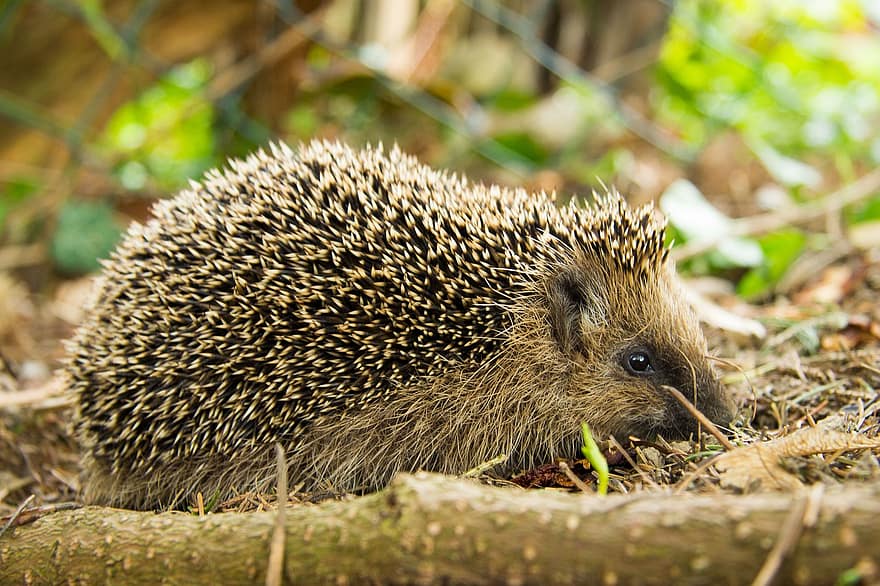Caring for Wild Hedgehogs
Here's everything you need to know to help you care for wild hedgehogs, plus some links to where you can grab some more information and guidance!
The Latin word for hedgehog is Erinaceus and our own British hedgehog is scientifically known as Erinaceus europaeus.
Hedgehogs are basically insect eaters & beetles, earth worms, caterpillars form the majority of their food. They are quite noisy eaters & enjoy the supplementary food put out by many households as they have adapted to urban life, with disappearing countryside. A meaty dog or cat food (not fish flavour as many contain ‘fish parts/bones’. Small dog &/or cat kibble is also enjoyed alongside the dry Hedgehog Foods readily available at many pet/garden centre stores.
Les Monts use Natures Grub Wildlife Food & Natures Grub Complete Pygmy Hedgehog Food for their residents &/or visiting wild hedgehogs. This is not found in the local stores, but can be purchased from Les Monts in various size (weight) bags: especially helpful during these difficult times. Phone Chris <temporarily_omitted>; place an order (see our shop for more details) & it can be collected from just inside the gate & money posted through the front door letter box in an envelope.
Natures Grub foods are scientifically produced & contain insect pellets, calci worms & more. They are a complete food & well recommended. I have used their products for many years & buy in bulk to keep the costs low.
Andy also makes both Feeding Stations & Hedgehog Houses, available for sale to keep your visiting wild ones safe & enjoy their food without the worry of cats etc. getting to it first. (See shop page.)
Always ensure that there is a dish of water around as they drink a considerable amount of water, especially in dry weather & when eating dry food.
Do note though that a hedgehog will do the rounds visiting as many as ten or more gardens a night, so if you see a hedgehog eating, it could in fact be several individual ones. Often people get to see (using night camera’s) several eating together. Remember if going on holiday to get a neighbour to put food out for you or they may take a different route. NO meal worms, sunflower seeds &/or peanuts please. These cause Brittle Bone Disease & an agonising death.
To ensure you keep your visitors please keep them safe by avoiding man made hazards. Ponds that they cannot get out of, (a beach type slope is essential); netting on the ground, raise it in veg patches for them to get under; no slug pellets!(Use a small pot of beer sunk into the ground) & no use of Pesticides as many are indiscriminate & could kill hedgehogs.
Ways to encourage hedgehogs into your garden: leave an area overgrown; leave a log pile to encourage them to nest & giving them insects to eat as the logs become homes to insects over a period of time. Water or a small wild life pond, must have a beach type side to exit & encourages frogs, toads & newts etc. If you prefer a bog garden is another way of creating a water/wild life source. Hedgehogs won’t go on it. But drink from the edge. Hedges instead of fences, or ensure the gravel boards if used, have a hedgehog highway. Beech, Holly, (evergreen winter shelter for roosting birds), buckthorn, dog rose, hazel, goat willow, hawthorn & Berberies are good hedging for wild life.
Wildflowers (do not take from the wild) seeds are available to feed & encourage insects. Recommended garden plants: Buddleia, Scabious, Marigolds, Michaelmas daisy, phlox & Pyracantha are a few. Ornamental grasses, Hostas & Cotoneaster all add shape, colour & interest also.
A Rockery will encourage toads, newts & female frogs to overwinter. Recommended rockery plants include Aubretia, Geraniums, Ivies, Sedums, Sempervivam and wild Thyme.
For further information email Chris or text on <temporarily_omitted>. Thank you.
